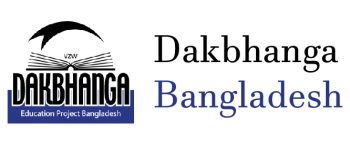Our Identity
FOUNDATION HISTORY
Dakbhanga-Bangladesh is an international development organization (INGO) in Bangladesh. It was established in 1998 to serve distressed and needy communities irrespective of gender, religion, ethnicity, caste, creed, etc. The initiative was taken firstly by the Project Director of Concern Universal-CU (now United Purpose-UP) Ms Rita Maynen, a hearty lady of Belgium who inspired us to work in the area. The former Country Representative Mr Abul Hossain established the foundation of Dakbhanga through a village society named Dakbhanga Gram Samityand the present Country Representative Md. Masum Billah Khan was then the helping hand of Mr Abul Hossain in the establishment process of the organization Dakbhanga. It was registered in Belgium and then the NGO Bureau of Bangladesh in 2004.
The overall objective of the project is to assist the Government to achieve the national goal of Education for All and Sustainable Development Goal 4. Quality Education-4.1.Universal primary and secondary education by 2030, ensure that all girls and boys complete free, equitable and quality primary and secondary education leading to relevant and effective learning outcomes and 2. Early childhood development and universal pre-primary education by 2030, ensure that all girls and boys have access to quality early childhood development, care and pre-primary education so that they are ready for primary education.
LEGAL STATUS
The Dakbhanga is registered in NGOAB with registration No.1952, 30 August 2004. The registration is valid up to 30 September 2029.
VISION
The vision of Dakbhanga Bangladesh is to create a society where children will grow to their full potential.
MISSION
The mission of Dakbhanga Bangladesh is to support children and its community to realize the full potential of all children.
VALUES OF THE ORGANIZATION
Dakbhanga-Bangladesh is committed to values of mutual respect, equity, justice, rule of law, transparency, accountability, integrity and impartiality.
OBJECTIVES OF THE ORGANIZATION
1. To reduce illiteracy through both formal, non-formal education and support to higher education;
2. To provide food, shelter, relief and rehabilitation of orphans, disabled, distressed and disaster-affected people;
3. To enhance women’s empowerment and eliminate gender inequalities and social injustices through different measures to ensure legal assistance & human rights;
4. To conduct research, survey, study, advocacy and consultation programs to support and pursue development initiatives and promote good governance at local and national levels;
5. To create organizational sustainability through Centres for basic and higher education, enterprise development, information and technology centres, technical and vocational training institutes, centres for resources development etc.;
6. Implement other relevant projects as per the goal and objectives of Dakbhanga-Bangladesh.
